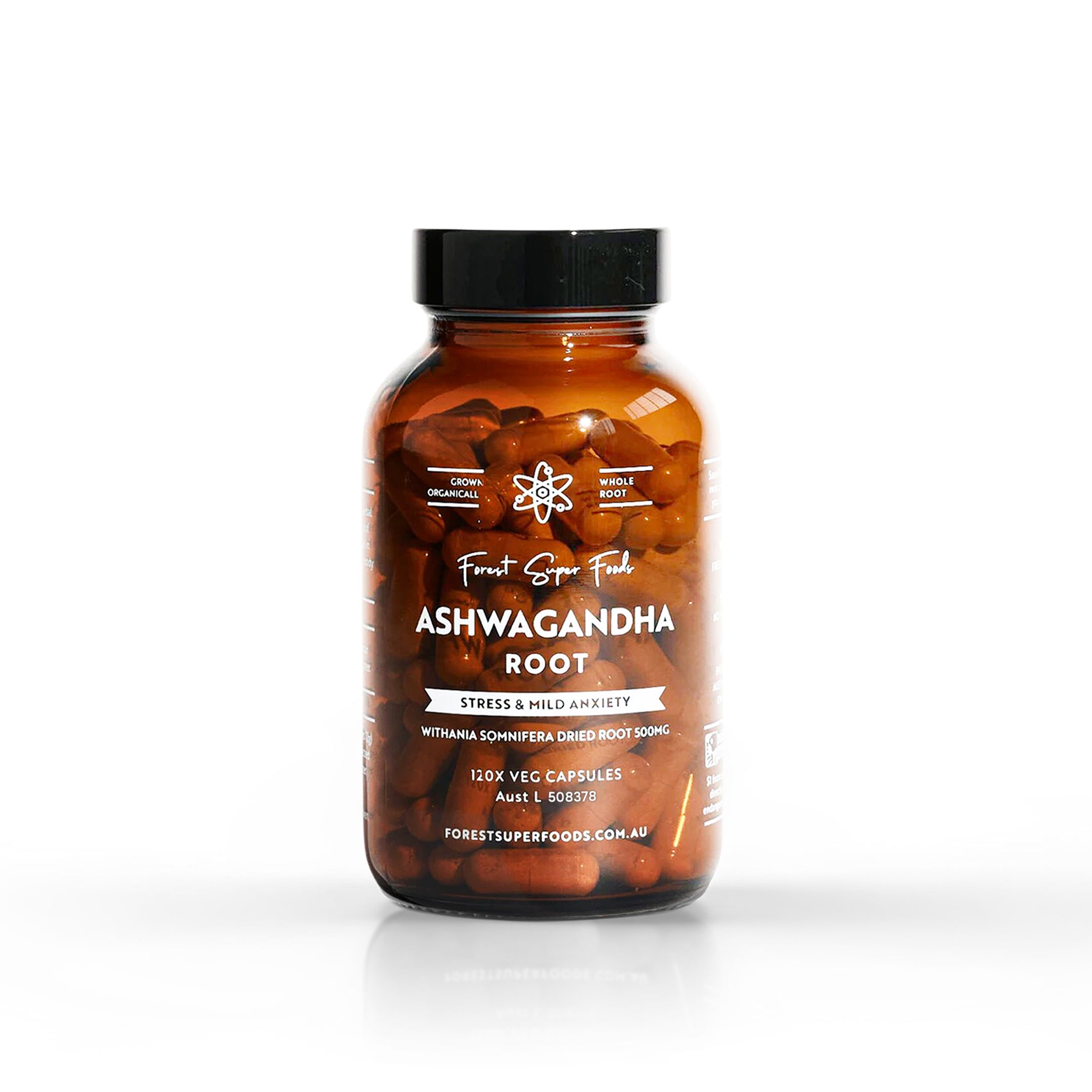Ashwagandha (Withania somnifera), also known as Indian ginseng or winter cherry, is one of the most widely used botanicals in Ayurvedic medicine. It is celebrated for its adaptogenic properties—helping the body adapt to stress, improving energy, and supporting resilience.
While it offers substantial benefits, it is important to acknowledge that not everyone tolerates ashwagandha the same way. As with any therapeutic intervention—natural or pharmaceutical—individual context matters.
Common and Mild Side Effects
These are usually dose-dependent and often resolve with dose adjustment or discontinuation:
-
Digestive Upset: Nausea, loose stools, bloating, or abdominal discomfort can occur, particularly when ashwagandha is taken on an empty stomach.
-
Drowsiness or Sedation: Ashwagandha has mild GABA-mimicking effects and can promote sleepiness in some individuals, especially at higher evening doses.
-
Headache: A less common but reported reaction, possibly related to vascular or nervous system sensitivity.
Hormonal and Endocrine Considerations
-
Thyroid Function: Ashwagandha may stimulate thyroid hormone production. For individuals with hyperthyroidism, it can worsen symptoms such as palpitations, anxiety, or heat intolerance. Conversely, for hypothyroid patients, this can be therapeutic—but must be monitored.
-
Reproductive Hormones: There is some evidence that ashwagandha may influence testosterone and fertility markers. While this is generally beneficial, in sensitive individuals it may contribute to hormonal fluctuations.
Psychological Effects
-
Overstimulation in Sensitive Individuals: While calming for many, some experience paradoxical anxiety, restlessness, or agitation, particularly if combined with other stimulants.
-
Vivid Dreams or Sleep Disturbances: Reported in some cases when ashwagandha is used as a sleep aid.
Safety and Contraindications
Certain groups should use ashwagandha with caution or avoid it altogether:
-
Pregnancy and Breastfeeding: Traditionally contraindicated as high doses may stimulate uterine contractions. Safety in lactation is not established.
-
Autoimmune Conditions: Ashwagandha can modulate immune activity, potentially aggravating autoimmune flares in conditions such as Hashimoto’s thyroiditis, lupus, or rheumatoid arthritis.
-
Gastrointestinal Ulcers: May irritate the stomach lining if consumed in raw powder or without food.
-
Medication Interactions:
-
Sedatives or anti-anxiety medications (additive drowsiness).
-
Thyroid medications (risk of overcorrection).
-
Immunosuppressants (potentially opposing effect)
-
Ashwagandha can be a powerful ally in stress management, energy restoration, and hormonal balance. However, as with all adaptogens, “one size does not fit all.” A careful assessment of the individual—considering thyroid status, immune balance, medications, and constitution—is essential.
Ashwagandha is best used:
-
In a wholefood form- not an extract for the safest delivery of nutrients
Used thoughtfully, ashwagandha remains a valuable part of the functional health toolkit. But it demands the same respect as any therapeutic agent—acknowledging both its benefits and its risks.
Mini Relax Blend CapsulesA powerful supplement for your health and wellness. Order Now |

|
Frequently Asked Questions
What does Ashwagandha do for the body?
Ashwagandha is a traditional adaptogen known for helping the body manage stress. It may support hormone balance, improve energy levels, reduce anxiety, and enhance sleep quality. Some studies also suggest benefits for brain function, endurance, and immunity.
Is Ashwagandha allowed in Australia?
Yes, Ashwagandha is approved for use and sale in Australia as a listed ingredient in supplements. At Forest Super Foods, we ensure our Ashwagandha is 100% organic and compliant with Australian standards and regulations.
What happens if I take Ashwagandha daily?
Many people take Ashwagandha daily for long-term stress support, improved mood, and better sleep. Most benefits are noticed gradually over weeks. Always follow the recommended dose and consult a healthcare professional if you're on medication or managing a health condition.
Does Ashwagandha have side effects?
Ashwagandha is generally well tolerated, but in some cases, it may cause digestive upset, drowsiness, or hormonal effects. It's not recommended during pregnancy, and people with thyroid conditions or autoimmune disorders should consult their doctor first.
Does Ashwagandha make you sleepy?
Ashwagandha doesn't act like a sedative, but it may promote relaxation and help reduce overactive stress responses. This calming effect may support deeper sleep at night without causing grogginess during the day.
How long does it take for Ashwagandha to kick in?
Most people start noticing effects within 2 to 4 weeks of consistent use. However, it can vary depending on your health, dosage, and what you're using it for (e.g., stress, sleep, energy, or hormones).










Leave a comment
All comments are moderated before being published.
This site is protected by hCaptcha and the hCaptcha Privacy Policy and Terms of Service apply.